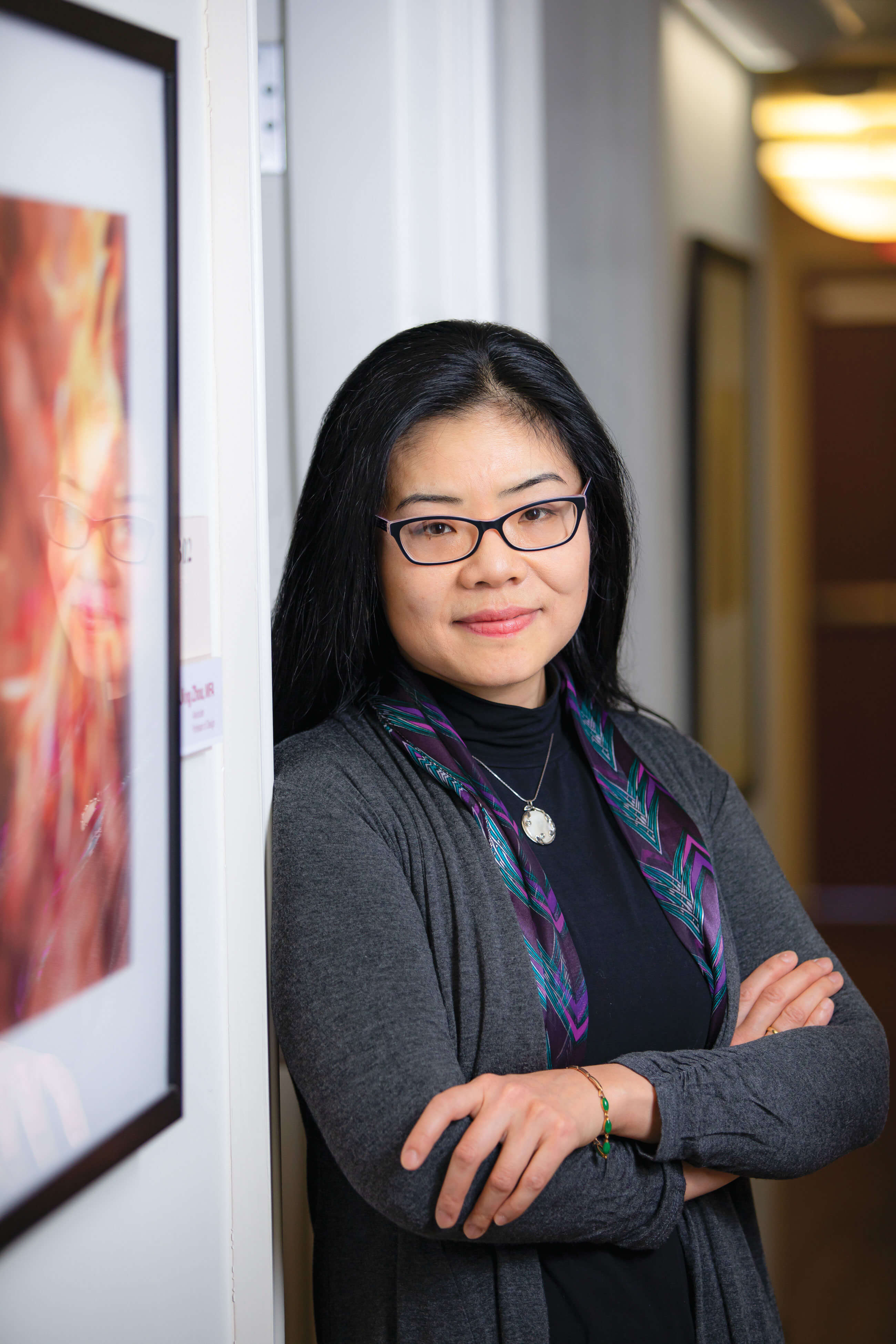
Bridging the Gap
A Monmouth professor’s award-winning app keeps refugee children connected to their heritage.
During the Second Sino-Japanese War, a woman by the name of Jiang Jian left behind her affluent life to help wounded warriors and refugee children. Her efforts, which included founding a school and co-establishing a relief and education association for refugee children, were part of the larger Mothers’ Movement in China, which was estimated to have helped rescue and educate more than 30 million displaced children during the war.
Jing Zhou, associate professor of art and design, learned of Jiang’s efforts through her grandparents, who knew Jiang personally. Her compassion and love inspired Zhou to create Cradlr, a digital platform that helps keep the world’s more than 13 million refugee children connected with their families, resources, and heritage. Parents and guardians of refugee children can use Cradlr to report their child as missing; upload information such as photos and the child’s medical and personal history; and even communicate with foster families, teachers, or international organizations caring for their child. The app also allows current guardians, foster families, teachers, and rescue workers to share information on refugee children with each other and with the child’s family.
“When I was in China conducting research, I met a 90-year-old woman who was a wartime refugee child in Jiang’s school. She had no idea where she was born or who her parents were. She had to come up with a name for herself when she was rescued,” Zhou says. “For refugee children, especially young children, if they grow up without a collective memory, they’re a blank page without family history, medical history, et cetera. And I observed that kind of brutality repeatedly in my research.”
Zhou received the Creative Work Award of the 2020 Design Incubation Communication Design Educators Awards for her work creating the design and vision for the Cradlr project, which is a United Nations Academic Impact project. With a patent pending, she has already donated the platform to multiple international humanitarian organizations, including the United Nations, Save the Children, Rotary International, and the Open Society Foundations for potential future use.
“There are a lot of unfortunate situations in this world that many of us are lucky to not be in, and we often don’t realize how much people suffer, especially children,” says Zhou. “For many of us, this type of app might not ever be needed unless a global catastrophic event broke out, but even for the 13 million refugee children across the globe today, a platform like this can help them to preserve their memory and identity.”